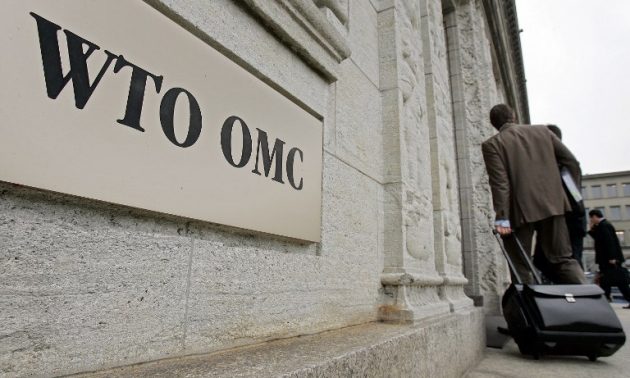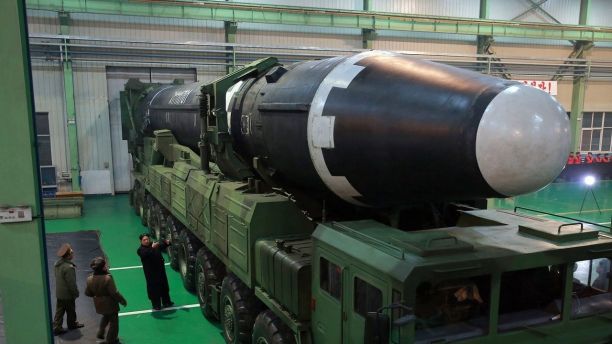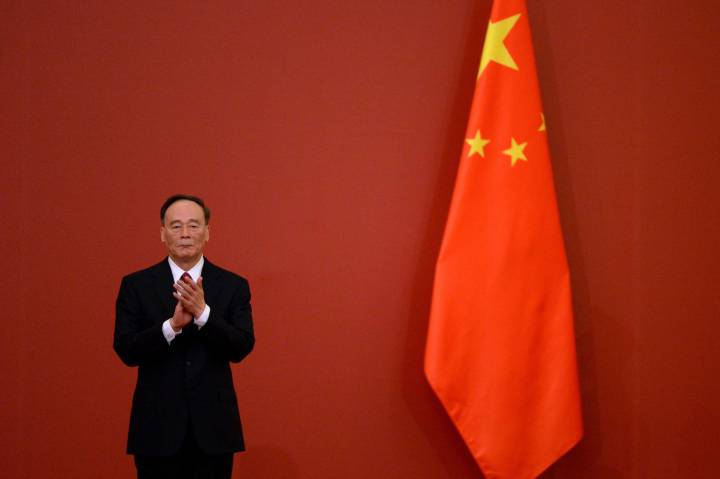
 The Future of the China-US Economic Relationship
The Future of the China-US Economic RelationshipSince President Trump's election, we have seen a tumultuous trade relationship between the United States and China, complete with everything from bitter politics to extravagant flattery. This week, of course, was no different. Despite the recent high-point in the bilateral trade relationship– the "34 big projects" yielded by Trump's visit to China, which a China-US Focus contributor detailed– the relationship hit rocky waters again when President Trump initiated a probe into Chinese aluminum imports earlier this week, that could swiftly lead to tariffs.
By "invoking powers that the U.S. hasn't used in more than a quarter century," the Trump administration bypassed the usual route of opening an investigation, which usually begins with petitions by U.S. companies. The Commerce Department initiated the case itself, in a move that China expressed "strong dissatisfaction" with, stating that it would hurt the national interests of both countries.
The trade hostilities did not stop there. China's status in the World Trade Organization (WTO) was also a source of contention. On Thursday, it was reported that the Trump administration was rejecting China's bid to be treated as a "market economy" under global trading rules. The U.S. said it based this position on signs China is moving in "the opposite direction under Xi Jinping." The timing of this move is strategic: were China to be recognized as a market economy, "it would make it more difficult for the U.S. to defend its anti-dumping rulings against Chinese companies at the WTO," the Financial Times reported.
Lastly, there are reports that the Comprehensive Economic Dialogue (CED) mechanism, the 'crown-jewel' of U.S.-China trade cooperation, has been "stalled" and that there are no plans to revive it.
Many experts interpret Trump's recent actions as a "populist-fueled" attack on global trade, and certainly on the China-U.S. economic relationship, despite the positive outlook earlier this month. Is "win-win cooperation" over already?
 Pyongyang's "Monster" Leaves Beijing and Washington With Few Options
Pyongyang's "Monster" Leaves Beijing and Washington With Few OptionsIn the early hours of Wednesday morning, Pyongyang's most capable missile to date made its maiden flight. Christened the Hwasong-15, nuclear experts have gone so far as to call the ICBM a "monster". MIT Associate Professor Vipin Narang said in an interview with NPR, "The missile is so much larger than previous versions that it could carry a powerful thermonuclear weapon, regardless of whether the North has managed to make a compact, missile-friendly version." Moreover, it gives Kim Jong Un the ability to reach Washington – something that just months ago few believed to be possible.
While analysts, media commentators, and policymakers have for months been pushing China to toe a tougher line with North Korea, the latest provocation has intensified the tone – and limited both countries' options. The Washington Post released a pessimistically-titled: If North Korea fires a nuclear missile at the U.S., how could it be stopped? "If it launches such a missile, the United States has a $40 billion system designed to destroy the bomb in space. What's unknown is whether it will succeed," the piece ominously reports.
Meanwhile, others are talking options now that Kim Jong Un has upped the ante. According to Cato Institute Senior Fellow Doug Bandow, "it is time to really negotiate with China over North Korea." Analysts, like Alton Frye of Foreign Policy, have put forth stronger prescriptions: "The only way to stand down from a nuclear confrontation is to reassure Kim Jong Un that the United States won't — and can't — invade. . .China should send 30,000 troops into North Korea." Trump himself said in response to the launch "we will take care of it," but has offered little in the way of clear strategy.
Regardless of the next moves that the Trump and Xi teams elect to make, it is clear that the two fronts remain at odds – and both now face a potential crisis at their backdoor. It is time to find common ground and move steadily in the direction of a cohesive solution.
 A new role for Wang Qishan?
A new role for Wang Qishan?Despite avid speculation in the run-up to the 19th Communist Party Congress, Wang Qishan, Xi's close ally and head of the party's anti-corruption drive, stepped down from the Politburo Standing Committee. In the aftermath of the congress, experts and media outlets debated the fate of "China's second most powerful man." The South China Morning Post speculated that Wang might take up a position at the National Security Commission, while other outlets thought he may move into an economic role, to match his expertise. However, on Friday, the SCMP reported that Wang was still attending meetings of the Politburo Standing Committee as a "non-voting member" and was expected to be named vice-president in March, at the annual session of the National People's Congress. As Axios argued, if true, this would be "a clever move by President Xi," as the vice-presidency has no upper age limit, and Wang could "become an international special envoy — a role that might include U.S.–China relations — while still influencing domestic financial and economic policy."
 This Week in Chinese History
This Week in Chinese HistoryThis week in Chinese history, on November 30, 1908, the United States and Japan made an agreement to maintain the status quo in the Pacific and to defend China's "Open Door" policy, independence and integrity. The Open Door policy was the concept that all countries who were trading with China had equal privileges.
After the first Sino-Japanese War from 1894-1895, major powers scrambled for "spheres of influence" within China. The involved powers worried that their counterparts would try to monopolize trade or that China would eventually be broken up into economic segments, each dominated by a different power.
The Root-Takahira Agreement, named after the then-U.S. Secretary of State, Elihu Root, and the Japanese Ambassador in Washington, Takahira Kogoro, averted a drift toward possible war over subtle Japanese violations of the Open Door policy after the Russo-Japanese War. The United States considered the Root-Takahira Agreement a diplomatic victory, as it halted the slide toward war and maintained free trade in the region.
Prepared by China-US Focus editorial teams in Hong Kong and New York, this weekly newsletter offers you snap shots of latest trends and developments emerging from China every week, while adding a dose of historical perspective.
- 2017-11-17 The “Indo Pacific”: A New American Strategy for Asia?
- 2017-11-10 President Trump Revels in China’s State-Visit Red Carpet Treatment
- 2017-11-03 Will China Display Hard or Soft Power in the Era of Xi?
- 2017-10-27 All Eyes on Xi
- 2017-10-20 The 19th Party Congress Begins
- 2017-10-13 Tech Titans
- 2017-10-06 China’s Super Golden Week
- 2017-09-29 All Quiet on North Korea’s Western Front?
- 2017-09-22 Back Together and Better than Ever: Renewed Sino-Russian Relations
- 2017-09-15 China positions itself to dominate the industries of the future
- 2017-09-08 Did North Korea just test a hydrogen bomb?
- 2017-09-01 Are Forced Technology Transfers Forcing the U.S. and China to Rethink How They Do Business?
- 2017-08-25 Bannon Out: What now for the China-US relationship?
- 2017-08-18 Trump Launches “Investigation on Whether to Investigate” China’s IP Laws
- 2017-08-11 Threats of "Fire and Fury" on the Korean Peninsula
- 2017-08-04 Trump Administration Plans Trade Actions Against China
- 2017-07-28 Xi to Dominate the 19th CPC Congress
- 2017-07-21 A Steely Comprehensive Economic Dialogue
- 2017-07-14 South China Sea Arbitral Award after One Year
- 2017-07-07 Now is the Trump Honeymoon with China Over?
